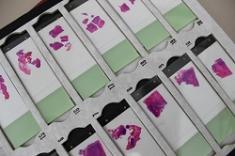Anatomic Pathology Fellowship
Anatomic Pathology Fellowship
About
The Laboratory of Pathology (LP) offers a multifaceted ACGME-accredited residency training program in Anatomic Pathology at the NIH Clinical Center. The Clinical Center is the site of intramural clinical research for the NIH, and home to more than 1500 clinical research protocols. Excelling in both clinical diagnosis and translational research, the department provides a stimulating intellectual environment for the resident interested in an academic career. The department emphasizes excellence in diagnosis and the use of modern technological tools to enhance accuracy and decipher disease mechanisms. In addition, LP staff members receive a large number of cases in consultation each year, resulting in a rich and diversified exposure to the practice of anatomic pathology. Most successful applicants have had prior research experience, or have a Ph.D. degree. Clinical training in the Anatomic Pathology Program includes three years of rotations and subspecialty training. An optional fourth year of training may be available to selected residents during which time they may participate in additional research activities.
Eligibility
Qualified candidates must have completed an M.D. degree from an approved U.S. or Canadian medical school, or must hold an E.C.F.M.G. certificate.
How to Apply
Three positions are open to new applicants each year. The Program participates in the National Resident Matching Program (NRMP), and applications should be submitted through the Electronic Residency Application System (ERAS).Applications should be submitted by December 1 for appointments beginning the following July. After review of completed applications, qualified candidates may be invited for interviews and to meet staff and residents.
Program Details
The philosophy of the training program is to provide broad and in-depth exposure to the subject matter of anatomic pathology, with an emphasis on clinical correlation, relationships to disease mechanisms, and exposure to investigational opportunities. Each case under study is viewed in the context of (1) the individual patient's clinical course, (2) strong personal interactions with the clinicians caring for the patient, and (3) the general relevance to disease pathophysiology and investigational questions. Residents become fully grounded in laboratory techniques, observational and descriptive analysis procedures, and the communication skills required to gain the maximum information prior to rendering a diagnosis.
Structure
The program provides for diversified experience in postmortem, surgical pathology, cytopathology, hematopathology, molecular pathology and cytogenetics diagnosis. Separate one-month subspecialty rotations in forensic pathology, surgical pathology, and pediatric pathology offered at affiliated institutions broaden the training offered at the NIH. Integrated training in dermatopathology, neuropathology, pediatric pathology, flow cytometry, immunopathology, informatics, management, and quality improvement are provided during all three years. Residents in the third year gain more authority in making diagnostic decisions and supervising other residents in both surgical and postmortem pathology. The training program has an abundance of formal courses, national meetings, and elective rotations at outstanding institutions across the country. The unique scientific environment of the NIH offers unmatched research opportunities, as well as a wealth of research conferences and lectures that supplement the clinical training.
The superlative quality of our residents contributes significantly to the success of this program. The Laboratory of Pathology (LP) consistently attracts top-rated candidates, many with both an M.D. and Ph.D. degree or additional post-graduate training or experience. Most of our past residents pursue careers in academic pathology or biomedical research. The research activities of the staff are diverse, incorporating the most modern techniques available in biomedical research and based upon a firm foundation of an intricate knowledge of the biology of the disease state. The Laboratory also offers ACGME-accredited subspecialty fellowships in cytopathology and hematopathology that integrate advanced diagnostic pathology with opportunities for laboratory research and instruction in sophisticated laboratory techniques. Much of the strength of this residency training program comes from the internationally recognized reputation of the anatomic pathology staff. The staff is acclaimed in many areas of anatomic pathology and is committed to excellence in the teaching program. Because our clinical programs are integrated with the research activities of the NIH, our residents are exposed to information regarding the pathogenesis and pathophysiology of diseases that they are learning to diagnose on a regular basis. This insight into the basic disease mechanisms of pathology enhances their educational experience.
For More Information
Potential applicants may contact:
Program Director
Martha Quezado, M.D.
Program Administrator
vacant

